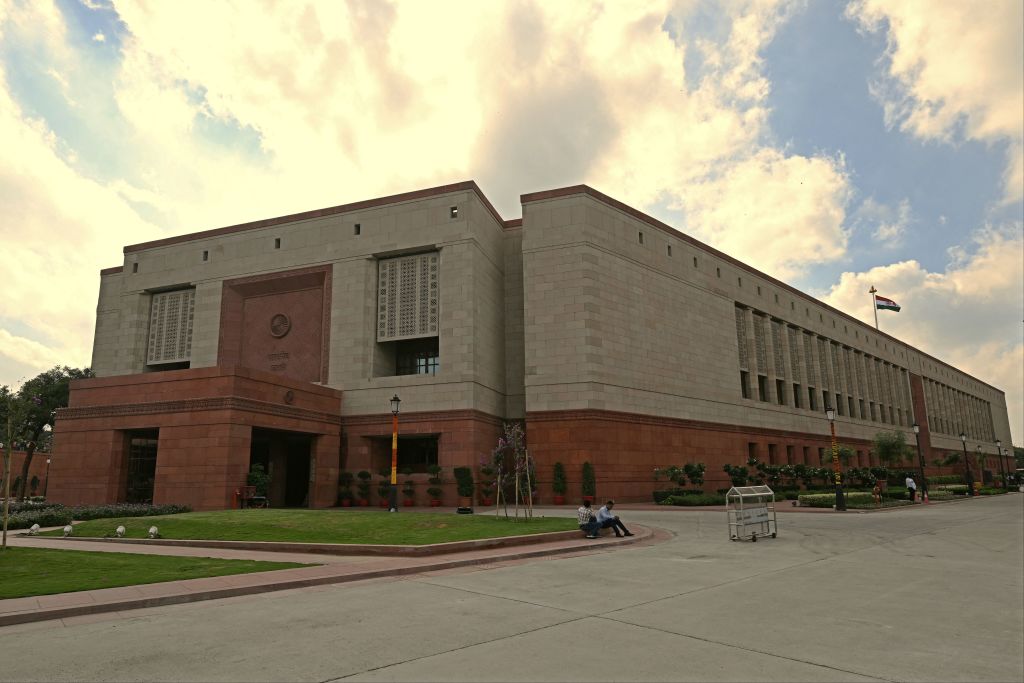- Thursday, April 03, 2025
The Congress, Samajwadi Party and the Trinamool Congress want the bill should be sent to the standing committee

By: Shajil Kumar
OPPOSITION parties on Wednesday demanded that the Waqf (Amendment) Bill be sent to Parliament’s standing committee for scrutiny after it is introduced, with the government saying the Business Advisory Committee will take a call after assessing the sense of Lok Sabha.
The government, official sources said, will not press for the passage of the Bill after it is introduced in Lok Sabha on Wednesday.
The bill was circulated among Lok Sabha members on Tuesday night ahead of its introduction.
Whether to send the bill to a Parliament panel for scrutiny or not will be decided on Wednesday but it cannot be ruled out, a source said.
The Congress, Samajwadi Party and the Trinamool Congress representatives at the committee said that the bill, which is being opposed by some Muslim organisations, should be sent to the standing committee, which deals with the minority affairs ministry and has not been constituted yet.
The House may form a panel in the absence of the standing committee.
The bill also aims at renaming the Waqf Act, 1995, as the Unified Waqf Management, Empowerment, Efficiency and Development Act, 1995.
According to its statement of objects and reasons, the bill seeks to omit Section 40 of the current law relating to the powers of the board to decide if a property is Waqf property.
It provides for a broad-based composition of the Central Waqf Council and the State Waqf Boards and ensures the representation of Muslim women and non-Muslims in such bodies.
The bill also proposes the establishment of a separate Board of Auqaf for the Boharas and Aghakhanis.
The draft law provides for the representation of Shias, Sunnis, Bohras, Agakhanis and other backward classes among Muslim communities.
The bill also aims to clearly define “‘Waqf’ as Waqf by any person practising Islam for at least five years and having ownership of such property”.
One of its objectives is streamlining the manner of registration of Waqfs through a central portal and database.
A detailed procedure is established for mutation as per revenue laws with due notice to all concerned before recording any property as a Waqf property.
The Wakf Act, 1995, was brought to regulate ‘Auqaf’ (assets donated and notified as Waqf) by a ‘wakif’ (the person who dedicates a property for any purpose recognised by Muslim law as religious or charitable).
The Act was last amended in 2013.
Board for Dargahs mooted
The All India Sufi Sajjadanashin Council has welcomed the government’s decision to amend the law governing Waqf boards, saying it was long due.
All India Sufi Sajjadanashin Council (AISSC) chairman Hazrat Syed Naseruddin Chishty demanded a separate Dargah Board under the amendments.
“In the present Waqf Act, there is no mention of dargahs at all. The Waqf Boards do not recognise the traditions of the dargah as many of our traditions are not there in sharia, so we demand a separate Dargah Board,” he said at a press conference.
Chishty alleged the Waqf Boards work in a “dictatorial manner” in their present form and have no transparency at all.
“We are hopeful that the draft Waqf Amendment Bill will be comprehensive and serve the interests of all stakeholders. Following a thorough examination of the draft, we intend to submit our recommendations and proposal,” he added. (PTI)